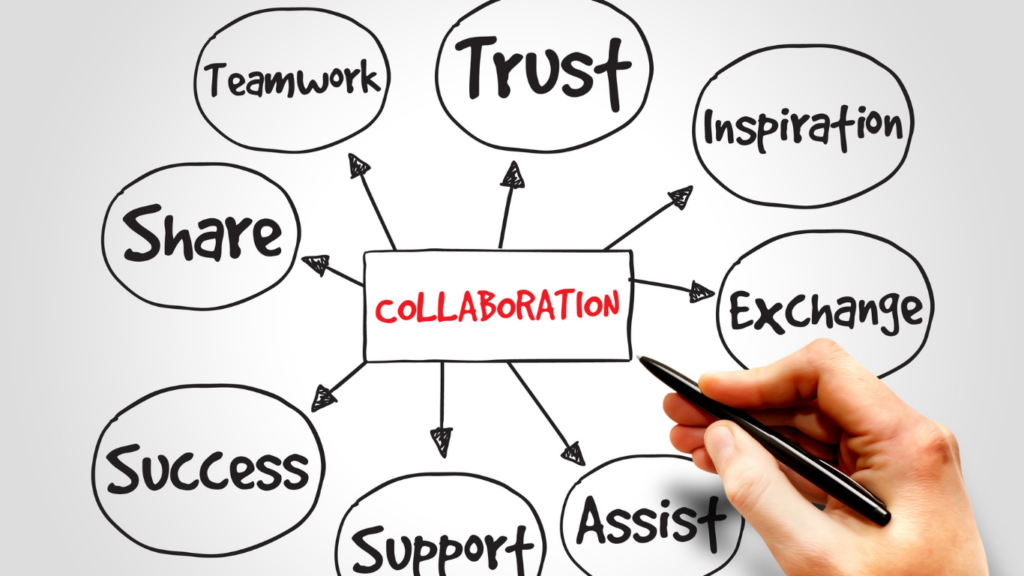
Collaboration Skills: Key success for teamwork and self-development
Collaboration skills are the abilities that enable individuals to work effectively with others towards a shared goal. It involves effective communication, active listening, problem-solving, and teamwork. Strong collaboration skills are essential for success in both personal and professional settings.

Collaboration Skills: The Bedrock of Effective Teamwork
Collaboration skills are the interpersonal abilities that enable individuals to work effectively with others towards a shared goal. They are essential for success in both professional and personal settings, as they foster teamwork, innovation, and problem-solving.
Effective Communication:
- Active Listening: Paying full attention to others, understanding their perspectives, and responding thoughtfully.
- Clear and Concise Communication: Expressing ideas clearly and concisely, both verbally and in writing.
- Non-verbal Communication: Using body language, tone of voice, and facial expressions to enhance communication.
Teamwork:
- Mutual Respect: Valuing the contributions of team members and treating everyone with dignity.
- Shared Goals: Understanding and aligning with the team’s objectives.
- Effective Roles: Assigning and fulfilling roles within the team to maximize productivity.
Problem-Solving:
- Critical Thinking: Analyzing complex problems and identifying potential solutions.
- Brainstorming: Generating creative ideas and exploring different perspectives.
- Decision-Making: Making informed decisions based on available information.
Conflict Resolution:
- Active Listening: Understanding the root causes of conflicts.
- Empathy: Putting oneself in another’s shoes to understand their feelings.
- Compromise: Finding mutually beneficial solutions.
Adaptability:
- Flexibility: Adjusting to changing circumstances and unexpected challenges.
- Open-Mindedness: Embracing new ideas and perspectives.
By developing and honing these essential skills, individuals can become valuable assets to any team, fostering a positive and productive work environment.
Advantages of Collaboration Skills

Collaboration skills offer a multitude of benefits for both individuals and organizations. Here are some of the key advantages:
Collaboration skills enhance Problem-Solving
- Diverse Perspectives: Collaborative teams bring together diverse viewpoints, leading to more creative and innovative solutions.
- Shared Knowledge: By pooling knowledge and expertise, teams can tackle complex problems more effectively.
- Reduced Errors: Collaborative efforts can identify and address potential issues early on, minimizing mistakes.
Collaboration skills improve Decision-Making
- Informed Decisions: Collaborative decision-making involves considering multiple perspectives, leading to more informed choices.
- Shared Ownership: When decisions are made collaboratively, team members are more likely to be committed to their implementation.
- Reduced Risk: Collaborative decision-making can help identify potential risks and mitigate them.
Collaboration skills increase Productivity and Efficiency
- Shared Workload: Collaborative teams can distribute tasks efficiently, reducing individual workloads and increasing overall productivity.
- Faster Results: By working together, teams can accomplish tasks more quickly.
- Synergy: Collaborative efforts can create a synergy where the whole is greater than the sum of its parts.
Collaboration skills help stronger Relationships and Teamwork
- Improved Communication: Collaboration fosters effective communication and understanding among team members.
- Increased Trust: Working together on shared goals builds trust and respect.
- Enhanced Morale: Collaborative environments can boost team morale and job satisfaction.
Collaboration skills help personal and Professional Growth
- Skill Development: Collaboration opportunities allow individuals to learn new skills and develop their abilities.
- Career Advancement: Strong collaboration skills are highly valued by employers and can lead to career advancement.
- Personal Fulfillment: Contributing to a team and achieving shared goals can be personally rewarding.
By developing and honing strong collaboration skills, individuals can become more effective team players, leaders, and problem-solvers.
See also:
- How to deal with questions about “Fun facts about me” at the interview?
- Linear thinking: Key success in anything
Fostering Collaboration Skills: Practical Strategies

Here are some practical strategies to foster collaboration skills within teams:
Creating a Collaborative Culture
- Encourage Open Communication: Establish a safe and inclusive environment where team members feel comfortable sharing ideas, concerns, and feedback.
- Promote Active Listening: Train team members to actively listen to each other, ask clarifying questions, and provide constructive feedback.
- Foster Mutual Respect: Emphasize the importance of treating everyone with dignity and respect, regardless of their role or background.
- Celebrate Diversity: Encourage diversity of thought and perspective, recognizing that different viewpoints can lead to innovative solutions.
Implementing Collaborative Practices
- Team Building Activities: Organize team-building exercises to foster camaraderie and trust among team members.
- Collaborative Problem-Solving: Encourage teams to work together to identify problems, brainstorm solutions, and implement action plans.
- Shared Goals and Objectives: Clearly communicate team goals and ensure that everyone understands their role in achieving them.
- Regular Check-ins: Schedule regular meetings to discuss progress, address challenges, and celebrate successes.
- Use Collaborative Tools: Utilize collaboration tools like project management software, shared documents, and video conferencing to facilitate teamwork.
Providing Opportunities for Skill Development
- Training and Development: Offer training programs on communication, teamwork, and problem-solving skills.
- Mentorship and Coaching: Pair experienced team members with less experienced ones to provide guidance and support.
- Feedback and Recognition: Provide regular feedback and recognition for collaborative efforts and achievements.
By implementing these strategies, organizations can create a culture of collaboration that drives innovation, improves productivity, and enhances employee satisfaction.
Real-World Examples of Collaboration Skills
Here are some real-world examples of how collaboration skills are applied in various settings:
Workplace
- Software Development Teams: Agile development methodologies rely heavily on collaboration, with teams working together to plan, design, code, test, and deploy software.
- Healthcare Teams: Doctors, nurses, and other healthcare professionals collaborate to provide optimal patient care, coordinating treatments, sharing information, and making joint decisions.
- Marketing Teams: Marketers, designers, and copywriters work together to create effective marketing campaigns, from developing brand strategies to launching product promotions.
Education
- Student Groups: Students collaborate on projects, research papers, and presentations, sharing knowledge and skills.
- Teacher Collaboration: Teachers work together to develop curriculum, share best practices, and support student learning.
Community
- Volunteer Organizations: Volunteers collaborate to achieve common goals, such as fundraising, community service, and environmental protection.
- Neighborhood Associations: Neighbors work together to improve their community, organizing events, addressing local issues, and maintaining public spaces.
Everyday Life
- Family: Family members collaborate on household chores, decision-making, and raising children.
- Social Groups: Friends and acquaintances collaborate on hobbies, social activities, and shared interests.
By honing their collaboration skills, individuals can become more effective team players, leaders, and problem-solvers in both daily life and workplace.
